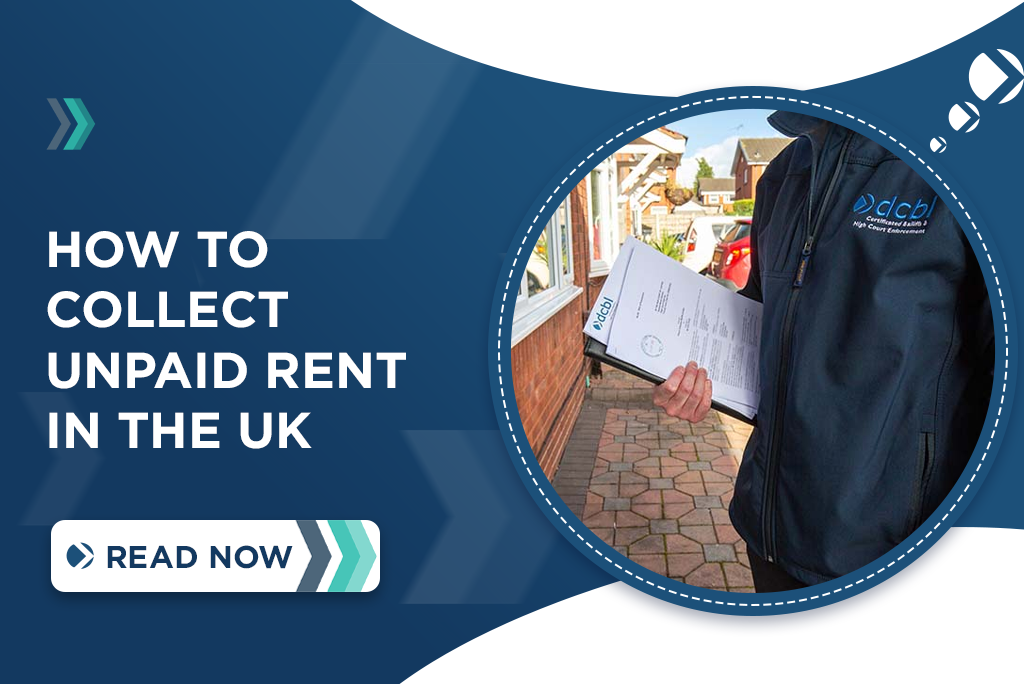
How to Collect Unpaid Rent in The UK – Residential Possession
28th December 2023
Are you suffering from tenants not paying their rent on time? Knowing how to collect unpaid rent arrears should be at the top of your list of priorities.
Renting out residential or commercial property can be a rewarding venture, but when tenants fall behind on their rent, landlords often face challenges in recovering the unpaid amounts.
In the UK, landlords that have been let down by their tenants have recourse to various methods to collect overdue rent.
An increasingly popular avenue is enlisting the services of specialist a High Court Enforcement agency such as DCBL.
DCBL have over 20 years of industry experience helping to resolve disputes between landlords and tenants.
This guide will explore how landlords can effectively use DCBL to recover unpaid rent and navigate the legal landscape.
How to Collect Unpaid Rent in The UK – 8 Steps
Residential / Commercial Property disputes and tenants leaving without paying rent are at the top of the list of problems that landlords face.
If you have not been paid rent that is due, you will need to take action and recover this quickly.
After all, many landlords rely heavily on the money made from renting to be able to live.
Here are some steps for how to regain possession of your property and get your unpaid rent paid.
1. Open Communication
The first step in the process is to talk to your tenants to discuss the reasons for non-payment and explore potential solutions.
A repayment plan made be beneficial for the tenant to get up to date with payments for the outstanding rent.
If communication fails to yield results, consider escalating the matter while still complying with legal procedure.
2. Review the Tenancy Agreement
Progress by revisiting the tenancy agreement to understand the terms related to rent payments, rental arrears, late fees, and potential consequences for non-payment.
This foundational document sets the stage for any actions you may take.
Knowing your rights will aid you in the future should you need to carry out an eviction process or go to the claims court.
3. Serve a Formal Notice
When necessary, serve a formal notice such as a Section 8 or Section 21 notice according to the Housing Act 1988.
A Section 8 notice warns the tenant that the landlord is seeking possession of their residential property. This may be because there is a debt owed or the tenant has breached the residential or commercial contracts.
You may want to send a statutory demand to the tenant if your rental property is a commercial property.
If the tenant remains unresponsive, move to the next step.
4. Specialist High Court Enforcement Agencies
Engage the services of a specialist High Court enforcement agency such as DCBL.
DCBL are specialists when it comes to ethical yet effective resolution, including recovering debts and rent arrears.
If you have a county court judgment for rent arrears, we can help you to enforce this and get your money back.
We possess the authority to enforce High Court Writs, providing a more robust and efficient method of recovering unpaid rent compared to traditional court proceedings.
5. Obtaining a High Court Writ
To enlist the services of a DCBL, you must first obtain a High Court Writ.
This involves applying to the High Court for permission, and upon approval, DCBL can take swift action to recover the debt.
Often, this is achieved through methods such as seizing assets or arranging a payment plan with the tenant.
County court bailiffs or court sheriffs have the power to take control of assets and sell them to pay off the debt that is owed.
6. Tenant’s Deposit
In conjunction with pursuing High Court enforcement specialists, landlords can also explore using the tenancy deposit to cover unpaid rent.
However, adherence to legal procedures and providing a detailed statement of deductions is crucial.
It is important that throughout this process you ensure to stay within the confinements within the law.
7. Mediation and Negotiation
While High Court enforcement provides a potent means of debt recovery, exploring mediation or negotiation alongside these efforts can lead to a more amicable resolution.
Some tenants may be open to reaching a compromise, avoiding the need for further legal action.
Legal costs can be extremely expensive depending on who you use and you will have to take care of fees such as a court fee.
8. Documentation and Legal Compliance
Throughout the process, meticulous documentation and adherence to legal procedures are essential.
This ensures that all actions taken are within the confines of the law, protecting the landlord’s interests and minimizing potential legal complications.
High Court Enforcement Specialists for Unpaid Rent Arrears
When faced with unpaid rent, landlords in the UK now have a powerful ally in specialist High Court enforcement agencies.
DCBL are experts when it comes to helping landlords who are asking how to collect unpaid rent in the UK.
For over 20 years, we have been the leading high court enforcement specialist in the country specialising in an ethical yet effective resolution.
Should your case require litigation support, our sister-company DCB Legal can take over to assist on the legal side.
By leveraging their expertise and authority, landlords can expedite the process of debt recovery while maintaining legal compliance.
This approach, coupled with clear communication and adherence to tenancy agreements, provides landlords with a comprehensive strategy to address and resolve issues of unpaid rent effectively.
Speak to one of our specialists today for advice and guidance on how you can recover unpaid rent arrears.






